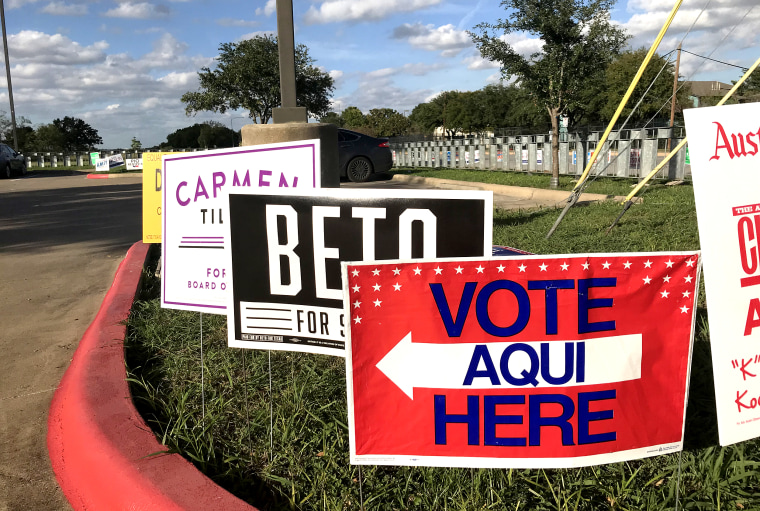The nation’s oldest Latino civil rights group, the League of United Latin American Citizens, filed a lawsuit against Texas on Tuesday after state officials said nearly 100,000 potential noncitizens may be on the state's voter rolls.
The Texas secretary of state’s office announced last week that it would send election officials a list of 95,000 flagged potential noncitizens for possible review. The office also said that 58,000 of those potential noncitizens had voted in one or more Texas elections since 1996.
The league’s lawsuit named David Whitley, Texas’ secretary of state, and Ken Paxton, the state’s attorney general, as defendants and said the state’s plan amounted to voter intimidation.
“It is, in short, a plan carefully calibrated to intimidate legitimate registered voters from continuing to participate in the election process and to enlist the broader public into joining the two officials in concentrated pressure against such continued participation,” the lawsuit said.
It is unknown how many of the people cited by the secretary of state have since become naturalized citizens, making it legal for them to vote in the state, and the lawsuit cited data that in fiscal year 2014 alone, 53,000 people became naturalized citizens in the state.
The suit added that potential citizens, particularly those who are Latino, were being “illegally targeted for voter intimidation” by the state.
“This is meant to attack Latinos,” Luis Roberto Vera Jr., national general counsel for the League of United Latin American Citizens, told NBC News.
Vera cited similar efforts in other states, including Florida, where in 2012 the state's Division of Elections put together a list of roughly 180,000 potential noncitizens who were registered to vote, but after review only about 85 people were removed from voter rolls, according to Politifact.
The American Civil Liberties Union said about a dozen other groups sent state election officials a letter Monday calling Texas' method for identifying noncitizens "deeply flawed," according to The Associated Press.
The Texas secretary of state's office and attorney general's office did not immediately return requests for comment.
Texas’s secretary of state and its Department of Public Safety have been working to identify any potential noncitizens who were registered to vote in the state for the past year.
According to Texas officials, the 95,000 potential noncitizens that were flagged had provided documentation to the state’s Department of Public Safety “showing that the person is not a citizen of the United States” when obtaining a driver’s license or personal identification card. In Texas, noncitizens can obtain driver’s licenses.
County officials could use the list to collect more data and determine their citizenship status.
In a statement to voter registrars, state Director of Elections Keith Ingram said any records submitted through the process “will need to be treated as WEAK matches,” meaning the county may choose to investigate the voter “or take no action on the voter record if the voter registrar determines that there is no reason to believe the voter is ineligible.”
President Donald Trump on Sunday tweeted misleading statistics about the Texas announcement.
Trump has repeatedly said that voter fraud is a significant problem. However, experts have repeatedly concluded that voter fraud is extremely rare.

